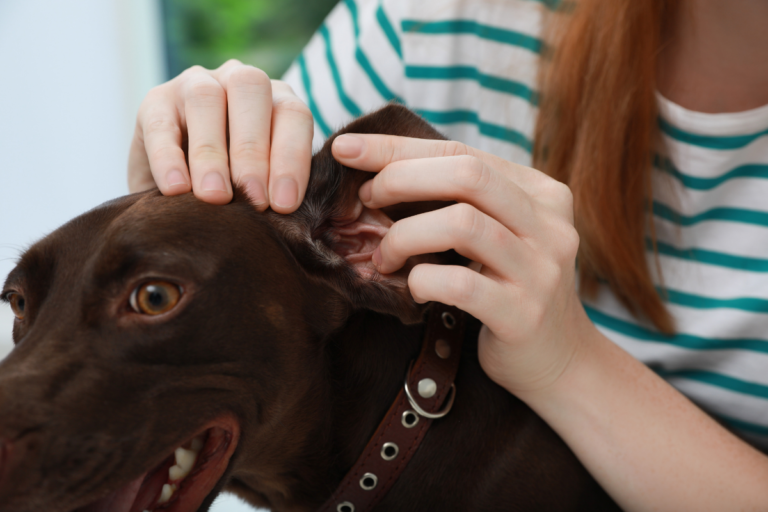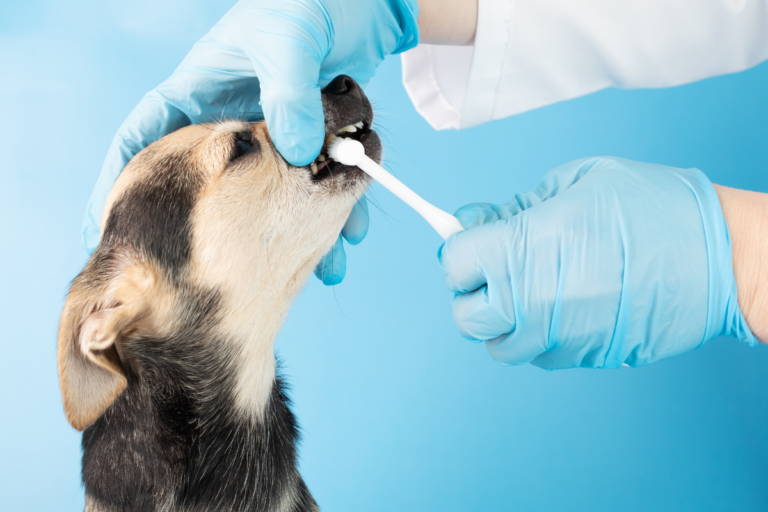Heart of Gold: Protecting Your Dogs Heart with Love and Care
Understanding Dog Heart Health
Loving our dogs means looking out for their tiny tickers. Keeping an eye on their hearts ensures they stick around longer to beg for treats. We’ll sniff around why monitoring their heart rate and spotting common heart woes is as important as a daily walk in the park.
Why Heart Rate Checkups Matter
Let’s talk numbers! Got a pocket-sized pup or a hefty hound? Their hearts thump at different speeds. Our little ball of fluff might have 90 to 120 beats per minute, while a lumbering giant probably lounges somewhere between 70 and 90. Making sense of these beats is like knowing every bark and tail wag; it’s crucial for catching sneaky health gremlins in action.
| Dog Size | Resting Heart Rate (bpm) |
|---|---|
| Small Breeds | 90 – 120 |
| Medium Breeds | 80 – 100 |
| Large Breeds | 70 – 90 |
Giving our dog’s pulse a friendly check now and then can be a lifesaver. For tips on playing doctor at home, let’s chat it up with our vet during routine check-ups.
Unpacking Doggy Heart Woes
Knowing the heart hiccups our pals might face helps us step in before a tailspin.
Valvular Disease
Valvular disease likes bothering our golden oldies. The mitral valve often misbehaves and lets blood leak out, leading to congestive heart blues. We’re talking coughing fits, heavy breathing, and your buddy acting like a couch potato. To tackle these signs, skedaddle over to our chat on dog heart failure.
Cardiomyopathy Types
Two beasty foes lurk in canine hearts:
-
Dilated Cardiomyopathy (DCM): Especially loves big fellas like Boxers and Dobermans. The heart’s pumping power slacks off while its ventricles turn wobbly. For Boxers, those muscles don’t just thump; they race! Get the scoop on this at Carolina Veterinary Specialists.
-
Hypertrophic Cardiomyopathy (HCM): While less of a drama queen in dogs than in cats, it makes the heart muscle thick-headed, messing with blood flow.
Myocarditis and Heartworm Troubles
Myocarditis is just a fancy word for an angry heart muscle, thanks to nasty infections, toxins, or the body turning traitor. Solving it means tackling what caused the fuss to begin with and easing any grumbles. Meanwhile, heartworm disease, courtesy of pesky mosquitoes, can wreak havoc on the heart and lungs. Keep the critters away with preventative meds and vet visits.
By clueing up on these common heart dramas, we’re playing superhero for our dogs’ heart health. For tail-wag-specific guidance, check our sections on cavalier health, golden retriever health issues, and other breed-specific quirks.
Specific Heart Conditions in Dogs
Getting to grips with the heart quirks of our pups helps in keeping them bouncing with joy. We’ve got some conditions to look out for.
Valvular Disease
Valvular disease, or mitral valve disease to sound fancy, messes with the heart’s blood flow mojo. It’s a common bugger for tiny dogs like Chihuahuas and King Charles Cavalier Spaniels. The heart’s valves might go a bit wonky or frail, which means blood’s playing back and forth rather than sticking to the plan.
| Breed | Common Symptoms |
|---|---|
| Chihuahua | Barking fits, tiredness, tough time breathing |
| King Charles Cavalier Spaniel | Slimming down, dull mood, swooning episodes |
Got a hankering for more on doggy heart ailments? Check out our dog heart disease section.
Cardiomyopathy Types
Cardiomyopathy is all about funny business with the heart muscle. It’s a mixed bag with each kind having its quirks.
-
Dilated Cardiomyopathy (DCM): The ol’ ticker goes big and sloppy, struggling to pump as it used to. Often seen in grand old mugs like Great Danes, Irish Wolfhounds, and Doberman Pinschers.
-
Arrhythmogenic Right Ventricular Cardiomyopathy (ARVC): Big name, Boxer fave. Causes the heart’s right vent to dance to a rapid beat which isn’t ideal for heart harmony.
| Cardiomyopathy Type | Affected Breeds | Common Symptoms |
|---|---|---|
| Dilated Cardiomyopathy (DCM) | Great Dane, Irish Wolfhound, Doberman Pinscher | Drop in energy, huffing and puffing, barking fits |
| Arrhythmogenic Right Ventricular Cardiomyopathy (ARVC) | Boxer | Passing out, heart skipping a beat, sudden bummers |
Peek at our large breed health issues for more breed-specific tail wags.
Myocarditis and Heartworm Disease
Myocarditis is the pesky inflammation of the heart muscle, hardly waving “hi” before it’s serious. Can lead to heart failure when it throws a tantrum. Keep up with vet checks to catch it sneaky-like.
And then there’s heartworm, spread by those buzzing little critters – mosquitoes. It’s a passport to all sorts of unpleasantness, with heartworms cozily snuggling in the heart and lungs. Regular meds and tests keep it at bay.
| Condition | Transmission | Symptoms |
|---|---|---|
| Myocarditis | Infections, auto-funky diseases | Drowsiness, swoons, quick breaths |
| Heartworm Disease | Mozzie bites | No zest for walks, barking fits, shedding pounds |
Snoop our advice on dogs and ticks and dog diseases to guard your pooch from heartworms.
Knowing about these heart hiccups means we can keep an eye on our woofs and wag their tails through life. Pop over to our dog heart failure page for tips on handling heart conditions.
Risk Factors by Breed
When it comes to keeping our pooches in tip-top shape, knowing which breeds face certain risks can be a lifesaver. Guess what? We’re jumping into heart disease across all four-legged sizes, from your little lap buddies to those gentle giants, and even those with a genetic knack for heart hiccups.
Heart Disease in Small Breeds
Let’s chat about those pint-sized pups first. Tiny dogs can be magnets for certain heart woes, notably Valvular Disease — a fancy term for valve issues that mess up blood flow.
- Chihuahuas and King Charles Cavalier Spaniels: These little cuties often tango with degenerative mitral valve disease (DMVD). Studies show about half of King Charles Cavaliers start to hear that heart murmur drum by age five, and nearly all sing along by ten.
- Miniature and Toy Poodles: Don’t let their fluff fool you — they wrestle with this pesky disease too, especially as they clock in a few more years.
| Breed | Condition | Age when it Pops Up | Prevalence |
|---|---|---|---|
| King Charles Cavalier Spaniels | Degenerative Mitral Valve Disease | Hit by age 5 | 50% |
| Chihuahuas | Degenerative Mitral Valve Disease | Middle age to golden oldies | High |
| Miniature Poodles | Degenerative Mitral Valve Disease | Middle age | Common |
Need some more scoop? Check out our cavalier health and healthy hounds spots.
Heart Disease in Large Breeds
Time for the big boys. Large hounds have their own list of heart hurdles.
- German Shepherds and Boxers: These solid breeds can run into aortic stenosis, where the aorta valve gets all cramped up.
- Bulldogs and Boxers: Known for their adorable smooshed faces and unfortunately, a tendency to pulmonic stenosis that hampers the blood trip from right ventricle to pulmonary passage.
| Breed | Condition | Typical Onset Age | Prevalence |
|---|---|---|---|
| German Shepherds | Aortic Stenosis | Variable | Moderately common |
| Boxers | Aortic and Pulmonic Stenosis | Varies | Moderately common |
| Bulldogs | Pulmonic Stenosis | Young to gettin’ seasoned | Common |
For more insight, hop over to our dog heart disease and german shepherd hip dysplasia stations.
Breeds Predisposed to Heart Defects
Now, let’s peek at the breeds born with a not-so-golden ticket to heart hiccups.
- Cavalier King Charles Spaniels: Boy, these guys almost always end up with degenerative mitral valve disease. It’s not if, but when.
- Boxers and Bulldogs: Double whammy here — watch out for both pulmonic and aortic stenosis.
- Newfoundlands, Golden Retrievers, and German Shepherds: These gentle giants pack a risk punch with several congenital heart issues.
| Breed | Congenital Defect | Age of Detection | Prevalence |
|---|---|---|---|
| Cavalier King Charles Spaniels | Degenerative Mitral Valve Disease | Typically by age 5 | Pretty much all |
| Boxers | Pulmonic and Aortic Stenosis | Young pups | Common |
| Newfoundlands | Subvalvular Aortic Stenosis | Little ones | Moderately common |
For even more nitty-gritty details, explore our bits on dog gum disease and periodontal disease in dogs.
Keeping tabs on these breed-specific heart risks means we can help ensure our dogs are wagging their tails through a long, happy life. Routine vet visits and staying on top of things early can make all the difference for our beloved paw friends.
Signs of Heart Disease in Dogs
Symptoms to Watch For
We all love our pups and want the best for them, which means we need to recognize when they might be dealing with heart trouble. There are a bunch of signs our canine pals might show if their hearts aren’t working quite right. Keeping an eye out for these signs can give us a head start in tackling any potential problems. Here’s what you might notice if your dog is having heart issues:
- Coughing: It tends to get worse at night or after your dog has been active.
- Breathin’ Trouble: Think labored, super fast, or short of breath.
- Feeling Blah or Weak: Seeing a dip in playfulness or feeling extra tired.
- Passing Out: Especially when your pup’s excited or exercising.
- Not Hungry: Shows less interest in their kibble.
- Belly Swellin’: Due to fluid hanging out in their tummy area.
- Can’t Sit Still: Mostly at night when they seem restless.
- Gummy Blues: Pale or blue-colored gums hinting that something’s up with oxygen levels.
| Symptom | Description |
|---|---|
| Coughin’ | More noticeable at night or after some exercise |
| Breathing Hassle | Labored, speedy, or short-winded |
| Weak or Lethargic | Less active or feels worn-out |
| Fainting | Losing consciousness during excitement or activity |
| Appetite Drop | Showing an indifferent attitude towards food |
| Swollen Belly | Fluid-making its home in the tummy zone |
| Restlessness | Especially visible during nighttime |
| Blueish Gums | Signaling low oxygen levels |
Catch these signs early to fight off heart woes successfully. Wanna learn more? Check out our dog heart failure page.
Early Detection and Diagnosis
Spotting heart issues early can mean a world of difference. Routine vet check-ups are pure gold for catching heart problems before things get hairy. Here’s what’s involved in getting on top of heart disease in our pups:
-
Routine Vet Visits: An annual or twice-a-year visit means the vet checks for any weird heart sounds like murmurs or funky rhythms.
-
Watchin’ Breaths: While chilling, pooches breathe at 10-35 times a minute, with the norm being around 24 breaths (Dixie Animal Hospital). Any increase might give a heads-up on troubles.
-
Tests Give Insight:
- X-rays: Handy for spotting an enlarged heart or liquid where it shouldn’t be.
- ECG: Keeps tabs on any offbeat heartbeats.
- Heart Ultrasound: Offers a peek inside the heart’s workings.
- Blood Work: Pins down heart-damage markers.
- Watch Out for Breed Risks: Some breeds get hit harder than others with heart stuff. Take Cavalier King Charles Spaniels; half of them get a murmur by age 5 due to degenerative mitral valve disease (petMD). Boxers have to be on alert for arrhythmogenic right ventricular cardiomyopathy, posing a risk for arrhythmias and sudden collapses (petMD). Knowing your breed’s risks sharpens your watch.
Regular vet visits and keeping an eye on symptoms are your best pals in taking care of your doggo’s heart health. Looking for more tips on how to prevent or tackle heart conditions? Head over to our heart disease prevention strategies and managing heart conditions in dogs pages.
Preventative Measures
Keeping our dogs’ hearts ticking like a kid on a sugar high involves regular vet visits and some savvy heart-health strategies. By jumping on potential problems early, we can handle them before they get out of hand.
Regular Veterinary Check-ups
Taking our dogs to the vet is like rolling up for an oil change—necessary and could save us tons of trouble later. Dogs, the sly devils, often hide heart problems, so getting vets in on the action helps us catch those sneaky signs like heart murmurs waving red flags. The American Heart Association News puts a spotlight on spotting stuff early, making heart issues easier to wrangle.
| How Often We Visit | Which Dogs Are We Talking About? |
|---|---|
| Twice a Year | Older Pups (7+ years) |
| Every Year | Middle-Aged Pals (1-7 years) |
| Every 6 Months | Young Whippersnappers (up to 1 year) |
Keeping up with what the vet orders and tracking down any issues is like setting a life GPS to “healthy heart” trajectory (Vetster).
Heart Disease Prevention Strategies
Beyond playing doctor, here’s our playbook to fend off heart disease and keep our furry friends in good shape.
Diet and Nutrition
Feeding our dogs a diet that’s like a spa retreat for their hearts is a smart move. Stuff ’em with the good stuff and skip the junkyard chow (read: high-salt foods). Omega-3s, please!
Exercise and Physical Activity
Dogs need a good run for their legs and brains. Keep ’em moving, but don’t push your old Lab like it’s still a puppy. Tailor their exercise plan like you’re organizing a party: age, breed, and what they’ve been through matter. PetMD reminds us that quality fun counts more than marathon sessions, so pick activities that fit like a glove.
Heartworm Prevention
Heartworm’s as welcome as a skunk at a barbecue. Those pesky critters cause heart problems. Pop ’em some heartworm meds and test regularly to dodge this nasty ball-and-chain (American Heart Association News).
Regular Dental Care
A smile clean enough to impress—dental health and heart health go paw in paw. If bad breath and plaque get ahead of you, they can cause more trouble than stepping on a LEGO. Regular flossing (the brushing kind) and dentist trips help to keep their ticker happy. Dig into our guides on dog gum disease and canine dental problems for more.
Following these tactics and scheduling those vet appointments ensures we’re not just all bark; we’re about their health. Keep our pups living their best lives by checking out more on dog diseases and symptoms and dog illnesses.
Managing Heart Conditions in Dogs
When it comes to our pups, keeping an eye on their heart health is a bit of a balancing act between what the vet says and how we train, feed and pamper them at home. Dive into the lifeline insights below on keeping those tails wagging happy and strong.
Medical Interventions and Treatments
Catching heart issues on time and getting the right care makes a world of difference, since about 8 million dogs stateside are dealing with heart problems (thanks for the stats, CVCA Veterinary Specialists). Let’s level up on the common medical treatments for our canine friends:
| Treatment | What’s It About | Example Conditions |
|---|---|---|
| Medications | Pills and potions to ease symptoms and boost heart vibes | Dilated Cardiomyopathy (DCM) |
| Surgery | Fix ups to patch holes or clear paths | Serious valve troubles |
| Dietary Changes | Tasty tweaks to cut the salt and eyeball weight | Congestive heart failure |
| Oxygen Therapy | Making breathing less of a slog for tough hearts | Advanced heart disease |
A pup with stuff like dilated cardiomyopathy (DCM) can benefit big from meds and diet fixes (CVCA Veterinary Specialists). You’re looking at a spectra of meds from ACE inhibitors for chilled-out vessels to diuretics to kick out surplus fluid.
Lifestyle Modifications for Heart Health
Rolling in some lifestyle changes alongside those meds? Bingo! It’s a good bet to stave off heart stress. Here’s the game plan:
-
Regular Exercise: Some tailor-made workouts keep hearts jumping. Before rolling out the play mat, chat with your vet about what’s cool for your pup’s groove. Our piece on healthy hounds has exercise gold nuggets.
-
Balanced Diet: Munchies low on salt and loaded with Omega-3s can work wonders. Doggos chomping specific chow have answers with special diets. Dive into the dog heart disease chapter for more.
-
Routine Health Check-ups: Popping by the vet regularly means snagging issues early. Keeping an ear on the heartbeat and reading the health-kit basics is top-notch stuff. More on early detection and diagnosis awaits.
-
Stress Management: Laying low on the stress scale is key for dog hearts. Gentle strolls, some fun, and home-sweet-home vibes do the trick. Peek at our mental health dog article for tips.
-
Preventive Measures: Staying on top with shots and shielding against pests like ticks and heartworms is a no-brainer. For the scoop on keeping the nasties away, check out dogs and ticks.
Key Lifestyle Metrics for Heart Health
| Factor | What’s Recommended |
|---|---|
| Exercise Duration | 20-30 minutes/day (check with vet) |
| Sodium Intake | <0.1% of chow |
| Vet Check-ups | Twice a year |
| Omega-3 Supplementation | Follow vet’s advice |
Mixing the right meds with those lifestyle shifts gives our pups the chance to roll on with a spring in their step. Always take the vet’s cue before shaking up your dog’s routine, and keep your eyes peeled on their health markers. Crunch the whole health plan over at heart disease prevention strategies.






